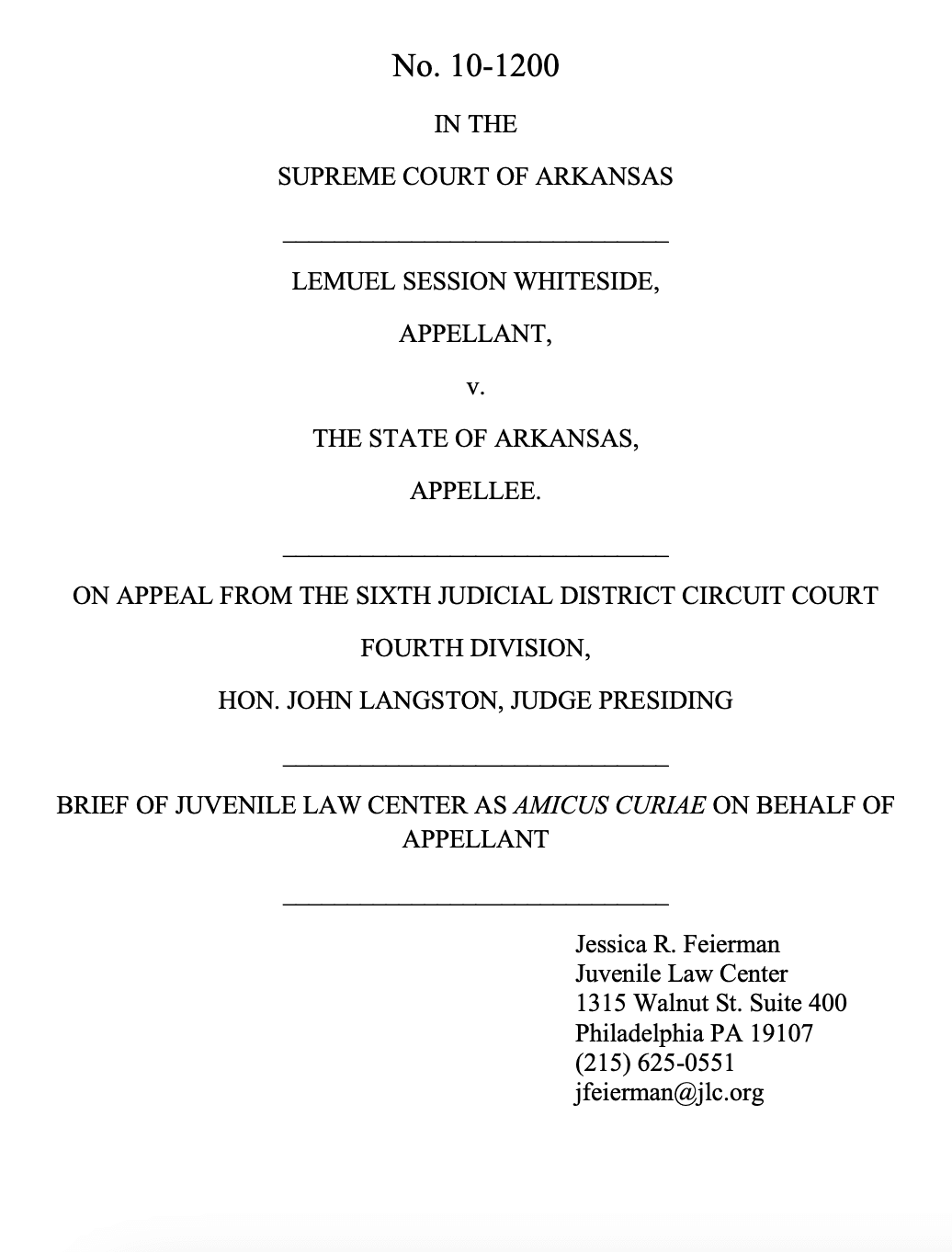
Summary of Argument
The imposition of a life without parole sentence on a juvenile who did not kill or intend to kill is barred by the United States Constitution. A sentence of life without parole for a juvenile under the age of eighteen who did not kill or intend to kill constitutes "cruel and unusual punishment" in violation of the Eighth Amendment. The developmental differences between juveniles and adults compel the conclusion that juvenile life without parole sentences are cruel and unusual punishment for defendants who do not kill or intend to kill. The Graham decision clarifies that juvenile life without parole sentences are unconstitutional because juveniles who do not kill or intend to kill must be treated differently than adults. The United States Supreme Court has long recognized that adolescents deserve distinct treatment under the Constitution. Social science research confirms the transitory nature of adolescence and the capacity of youth for rehabilitation.
Because the sentence of juvenile life without the possibility of parole for felony-murder serves no legitimate penological interest, it is unconstitutional. The mandatory nature of Arkansas' life without parole sentencing scheme makes it unconstitutional. The national consensus against mandatory LWOP sentences for juveniles convicted on felony murder charges further underscores that they are unconstitutional.